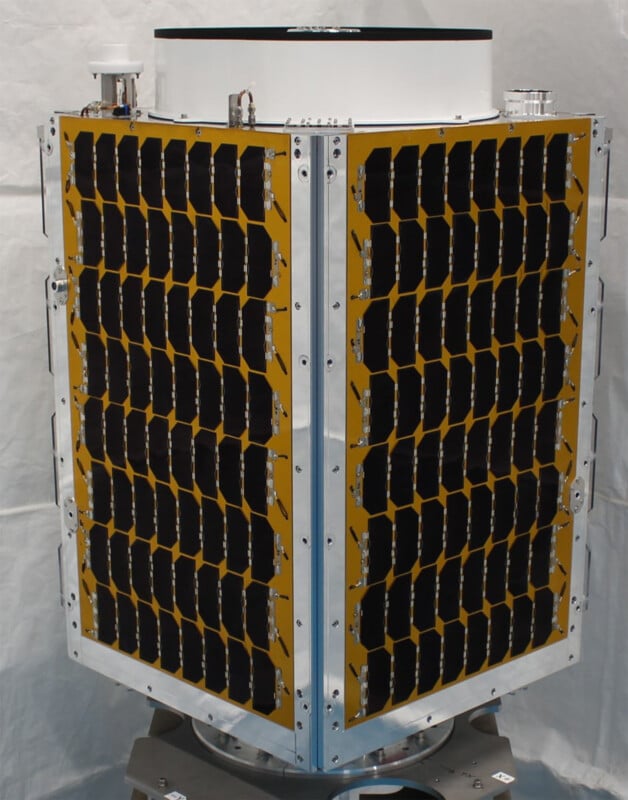![]()
Canon’s groundbreaking micro-satellite, CE-SAT-IE, has entered orbit and successfully communicated with the ground station at Canon Electronics’ Akagi Plant in Japan.
Canon launched its CE-SAT-IE from the Yoshinobu Space Center on February 17, 2024, at the JAXA Tanegashima Space Center.
Two days later, the Canon PowerShot S110 compact digital camera mounted on the micro-satellite successfully photographed the Gulf of California for the first time. The camera is used as a secondary optical system for wide-area photography.
The image of the Gulf of California shows 1,000 kilometers (621 miles) of colorful coastline. Registered as a World National Heritage Site, the region is also called “the aquarium of the world,” and is home to rich and diverse nature preserves.
The PowerShot S110 joins Canon’s high-resolution EOS R5 digital mirrorless camera, which serves as the micro-satellite’s primary optical system. The R5 is attached to a 400mm aperture telescope.
This high-resolution camera system promises a ground sampling distance of about 80 centimeters from an orbital altitude of 670 kilometers (416 miles). The shooting area is 6.5 by 4.3 kilometers (four by 2.7 miles).

A ground sampling distance, or GSD, is the distance between two consecutive pixel centers as measured on the ground.
The CE-SAT-IE weighs 70 kilograms (154 pounds) and is just 50 x 50 x 80 centimeters (19.7 x 19.7 x 31.5 inches). Canon says it has developed the optical systems, numerous sensors, and actuators in-house, plus, of course, the pair of Canon cameras onboard.
The CE-SAT-IE is designed for ground surface photography, both still images and video, and astrophotography. Canon aims to demonstrate the effectiveness of the micro-satellite as part of its remote sensing business, geospatial information for disaster prevention activities, and the acquisition of satellite images for safety and security.
The new satellite is the successor to Canon’s CE-SAT-1. As part of its CES activities in 2021, Canon allowed people to take their own photos of Earth using the satellite.
The older micro-satellite was launched in 2017 and is about the size of a wine barrel. It used a Canon EOS 5D Mark III DSLR as its primary imager, so the CE-SAT-IE sports a major upgrade in the resolution department, moving from 22.3 megapixels to 45 megapixels.
Image credits: Canon
